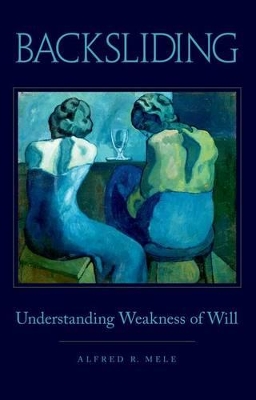People backslide.They freely do things they believe it would be best on the whole not to do - a judgment developed from their own point of view, not just the perspective of their peers or their parents. The aim of this book is to to clarify the nature of backsliding - of actions that display some weakness of will - using traditional philosophical techniques that date back to Plato and Aristotle (whose work on weakness of will or "akrasia" he discusses) and some new
studies in the emerging field of experimental philosophy. Mele then attacks the thesis that backsliding is an illusion because people never freely act contrarily to what they judge is best. He argues that it is extremely plausible that if people ever act freely, they sometimes backslide. At the
book's heart is the development of a theoretical and empirical framework that sheds light both on backsliding and on exercises of self-control that prevent it. Here, Mele draws on work in social and developmental psychology and in psychiatry to motivate a view of human behavior in which both backsliding and overcoming the temptation to backslide are explicable. He argues that backsliding is no illusion and our theories about the springs of action, the power of evaluative judgments, human
agency, human rationality, practical reasoning, and motivation should accommodate backsliding.
- ISBN10 0199366640
- ISBN13 9780199366644
- Publish Date 27 March 2014 (first published 23 March 2012)
- Publish Status Active
- Publish Country US
- Imprint Oxford University Press Inc
- Format Paperback
- Pages 160
- Language English
